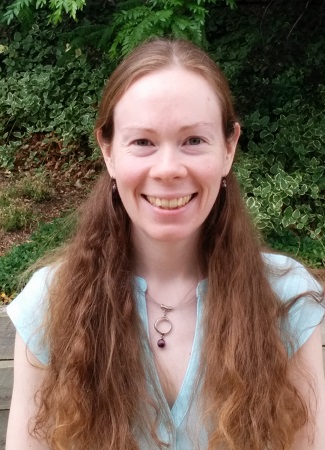
In the Religious Studies Project’s recent interview with Dr. Anna Fedele, Dr. Fedele and her interviewer discuss several aspects of interest related to the intersections of gender, religions, and power dynamics. Fedele’s book, Gender and Power in Contemporary Spirituality: Ethnographic Approaches (Routledge, 2013), is a collection of essays exploring the interaction of gender, gender norms, expressions of power, and those movements broadly identified as ‘spiritual’ or ‘spirituality’ (If you haven’t had a chance to read it yet, it is an excellent set of essays and well worth the read). Fedele’s current research involves Catholic women in Portugal and the idea of ‘spiritual motherhood.’ ‘Spiritual motherhood,’ in this context, means women who have chosen to be stay-at-home-mothers, breastfeed longer than the average, give birth at home, and/or practice attachment parenting. Fedele looks at not only the experiences of the women as mothers, but their experiences as daughters and granddaughters. Fedele observes that it is very important to understand a woman’s history to know how she conceptualizes gender and motherhood.
Early in the interview Fedele offers an answer to the not-so-simple question of ‘what is gender?’ Her answer is based in both her study of classical theories of gender as well as her extensive experience as an ethnographer: ‘gender’ is what the research participants believe it to be, rather than what the researcher believes it to be. Fedele states that in her research, she tries to understand what ‘gender’ means for the people she studies, especially what gendered images they have received from their mothers and grandmothers. This relates to religion as well, because the women receive a whole set of values from their mothers, and the Catholicism in which they grew up (and still live) tells them that the mother is the center of the family, the mother must always be there for the child, as well as other notions that may not reflect the lives of the women Fedele studies.
Fedele’s approach of being guided by the women she studies resonates strongly with my perspective on studying ‘religion(s).’ The identities claimed by the individual(s) or community being researched must be acknowledged and respected by the researcher, and communicated to the audience (reader, students in a seminar, etc.) along with the researcher’s perspective and conclusions. Fedele further emphasizes this point when she observes that an academic researcher must acknowledge the power issues present in a researcher-interviewee relationship: the academic doesn’t know everything, nor is the participant ignorant. Fedele provides an example from her recent research on women, motherhood, and gendered roles conveyed via religion. The women she interviews are highly educated, intelligent, and have read extensively on pregnancy and motherhood. They are then struggling to reconcile the message of the Catholic Church (that a pregnant woman is in a state of grace, and the ideals of motherhood exemplified by the Virgin Mary) with their lived reality of physical pain and illness, sexuality, and spurts of emotions such as anger or impatience.

Fedele also cautions that scholars have an awareness of their own assumptions about the research topic. Some of Fedele’s colleagues had made a couple of highly inaccurate assumptions regarding the Portuguese women in Fedele’s study (for instance, the idea that because the women identify as religious they therefore follow all of the dictates of the Catholic Church, especially regarding abortion); the women must be anti-abortion because they value motherhood so highly, or so the assumption went. But Fedele’s research shows a much more nuanced, complicated picture: the women are not uniformly anti-abortion, owing to a distinct contrast between their Catholic upbringing, which taught that abortion is wrong, and what the women feel in their bodies and the agency they claim.
Later in the interview, Fedele emphasizes that it is crucial for scholars to have an awareness of how the religion is lived, in reality, by the people being studied. She further states that religion only exists in the lives of people and that while religion in texts can be studied, it is not alive. For example, in practice this means that she looks at living women and their stories, and shares her writing with them. She keeps an open mind regarding what they tell her and is careful to use non-judgmental language. Fedele notes that the women aren’t always interested in Fedele’s conclusions – some just read sections about themselves for accuracy or to make sure they aren’t identifiable – but some engage with the research as a whole.
These are valuable lessons for scholars of not only religion and gender, but are more broadly applicable to all scholars of religion. Whether a scholar is studying a living community, as Fedele does, or researching a text, we must be aware of the assumptions we carry with us as scholars. A person living a religion may appear different than a text would lead the researcher to believe and living communities of the same religion will differ based on location. (A point also noted by Jeff Wilson in his 2012 book, Dixie Dharma.) Fedele also leaves the listener contemplating a thorny problem related to the study of religion-as-lived (her preferred phrasing instead of ‘lived religion’): Fedele’s in-depth, ethnographic research is at odds with the pressure within departments for faculty to expediently finish research so that it can be published quickly. This hurried model of research and publication – and the constraints on conducting ethnographic research while teaching – is ultimately detrimental to the field. The trust between scholar and participant cannot be rushed or forced because the scholar is on a deadline. What valuable insights is the field missing by making it difficult for scholars to perform extensive studies on living communities?
References
Fedele, Anna and Kim E. Knibbe, eds. Gender and Power in Contemporary Spirituality: Ethnographic Approaches. Routledge Studies in Religion Series. New York & London: Routledge, 2013.
Fedele, Anna. Looking for Mary Magdalene: Alternative Pilgrimage and Ritual Creativity at Catholic Shrines in France. New York & Oxford: Oxford University Press, 2013.
Wilson, Jeff. Dixie Dharma: Inside a Buddhist Temple in the American South. Chapel Hill, NC: University of North Carolina Press, 2012. (Paperback released in 2014)



